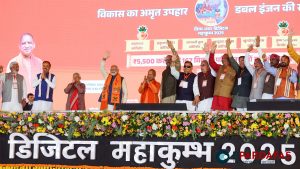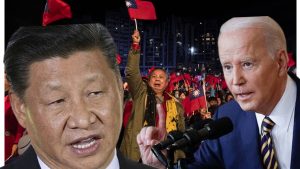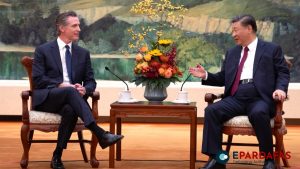
Indian Mountaineers Name Peak After 6th Dalai Lama, Angering China
In a move that has sparked strong condemnation from China, a team of Indian mountaineers has successfully scaled an unnamed peak in Arunachal Pradesh and named it “Tsangyang Gyatso Peak” after the 6th Dalai Lama. The 15-member expedition, led by Col. Ranveer Singh Jamwal of the National Institute of Mountaineering and Adventure Sports (NIMAS), overcame severe conditions, including steep ice walls and perilous crevasses, to reach the 20,942-foot summit in the Gorichen range.
The decision to name the peak after the 6th Dalai Lama has not gone unnoticed in Beijing, which claims Arunachal Pradesh as part of its territory, referring to it as “Zangnan.” China’s Foreign Ministry strongly condemned the naming, calling it “illegal” and “null and void.” Spokesperson Lin Jian reiterated Beijing’s stance that “the area of Zangnan is Chinese territory” and rejected India’s naming of the peak.
India, however, has firmly stood its ground, asserting that Arunachal Pradesh is an integral part of the country and dismissing China’s claims. Indian officials have emphasized that “invented” names cannot alter the reality on the ground. NIMAS, which operates under India’s Ministry of Defence, stated that naming the peak after the 6th Dalai Lama is a tribute to his “timeless wisdom and profound contributions” to the local Monpa community and the broader region.
China’s response may be further aggravated by the historical significance of the 6th Dalai Lama, Tsangyang Gyatso, who was born in 1682 in the Mon Tawang area, now part of Arunachal Pradesh. The Dalai Lama institution holds great importance for Tibetan culture and history, which China has sought to minimize since annexing Tibet. The peak’s naming is seen as a reaffirmation of Tibet’s historical and cultural ties to India.
This is not the first time China has reacted strongly to Indian actions in Arunachal Pradesh. Since 2017, Beijing has been renaming places in the state in an attempt to reinforce its territorial claims, moves that India has consistently rejected. Despite these efforts, India maintains that Arunachal Pradesh is an inalienable part of the country.
As tensions persist between the two countries over their shared border, this symbolic naming is likely to add further strain to already fraught relations. The naming of the peak, beyond its geopolitical implications, highlights the deep historical and cultural connections between Arunachal Pradesh and Tibet, reinforcing India’s longstanding ties to the region.













Comments